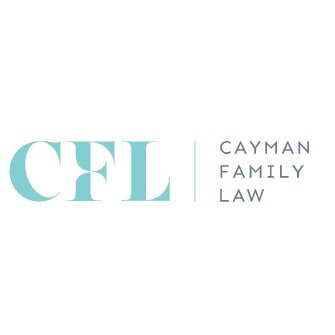Best Child Visitation Lawyers in George Town
Share your needs with us, get contacted by law firms.
Free. Takes 2 min.
Free Guide to Hiring a Family Lawyer
List of the best lawyers in George Town, Cayman Islands
About Child Visitation Law in George Town, Cayman Islands:
Child visitation in George Town, Cayman Islands refers to the legal right of a non-custodial parent to spend time with their child. This is an important aspect of family law that aims to ensure the best interests of the child are prioritized while also allowing both parents to maintain a relationship with their child.
Why You May Need a Lawyer:
You may need a lawyer for child visitation issues in George Town, Cayman Islands if you are facing challenges with visitation schedules, disagreements with the other parent, or in cases where there are concerns about the child's safety or well-being during visits. A lawyer can provide legal guidance, help negotiate visitation agreements, and represent your interests in court if necessary.
Local Laws Overview:
In George Town, Cayman Islands, child visitation laws are governed by the Children Law (2012 Revision). This law outlines the rights and responsibilities of parents regarding child visitation, including factors such as the child's best interests, the non-custodial parent's right to visitation, and the importance of maintaining a strong parent-child relationship. It also sets out the process for resolving visitation disputes through mediation or court intervention.
Frequently Asked Questions:
1. How is child visitation determined in George Town, Cayman Islands?
In George Town, Cayman Islands, child visitation is typically determined based on the best interests of the child. The court may consider factors such as the child's age, the relationship with each parent, the ability of each parent to provide for the child's needs, and any history of abuse or neglect.
2. Can visitation rights be modified?
Yes, visitation rights can be modified if there is a significant change in circumstances that warrants a revision of the existing visitation agreement. This may require court approval, and a lawyer can help navigate the legal process.
3. What if the custodial parent is refusing visitation rights?
If the custodial parent is refusing visitation rights, the non-custodial parent can seek legal assistance to enforce their visitation rights. This may involve filing a motion with the court or seeking mediation to reach a resolution.
4. Can grandparents or other relatives be granted visitation rights?
In some cases, grandparents or other relatives may be granted visitation rights if it is in the best interests of the child. This will depend on the specific circumstances of the case and may require court intervention.
5. Is visitation affected by relocation?
Relocation can impact visitation arrangements, especially if the move significantly affects the ability of the non-custodial parent to visit the child. In such cases, visitation rights may need to be reevaluated and adjusted to accommodate the new circumstances.
6. What is the difference between visitation and custody?
Visitation refers to the right of a non-custodial parent to spend time with their child, while custody involves the legal authority to make decisions on behalf of the child. These two aspects are distinct but related components of family law.
7. Can visitation rights be restricted or supervised?
In cases where there are concerns about the safety or well-being of the child during visitation, the court may restrict or supervise visitation to ensure the child's welfare is protected. This is typically done to safeguard the child's best interests.
8. How can a lawyer help with child visitation issues?
A lawyer can provide legal guidance, help negotiate visitation agreements, represent your interests in court proceedings, and ensure that visitation arrangements are fair and in the best interests of the child. They can also help enforce visitation rights if they are being denied or violated.
9. Are visitation rights automatically granted to the non-custodial parent?
Visitation rights are not automatically granted to the non-custodial parent. They must be established through a formal visitation agreement or court order that outlines the visitation schedule, rights, and responsibilities of each parent.
10. How long does the visitation process typically take?
The visitation process can vary depending on the specific circumstances of the case, including the level of cooperation between parents, the complexity of the issues involved, and whether court intervention is required. It is best to seek legal advice to understand the timeline for resolving visitation issues.
Additional Resources:
For additional resources related to child visitation in George Town, Cayman Islands, you can contact the Family Resource Centre, the Family Services Department, or consult with a local family law attorney who specializes in child visitation cases.
Next Steps:
If you need legal assistance with child visitation in George Town, Cayman Islands, it is important to consult with a qualified family law attorney who can provide guidance on your rights, options, and the legal process involved. Be prepared to discuss your specific situation, concerns, and goals for visitation arrangements with your attorney to ensure the best possible outcome for you and your child.
Lawzana helps you find the best lawyers and law firms in George Town through a curated and pre-screened list of qualified legal professionals. Our platform offers rankings and detailed profiles of attorneys and law firms, allowing you to compare based on practice areas, including Child Visitation, experience, and client feedback.
Each profile includes a description of the firm's areas of practice, client reviews, team members and partners, year of establishment, spoken languages, office locations, contact information, social media presence, and any published articles or resources. Most firms on our platform speak English and are experienced in both local and international legal matters.
Get a quote from top-rated law firms in George Town, Cayman Islands — quickly, securely, and without unnecessary hassle.
Disclaimer:
The information provided on this page is for general informational purposes only and does not constitute legal advice. While we strive to ensure the accuracy and relevance of the content, legal information may change over time, and interpretations of the law can vary. You should always consult with a qualified legal professional for advice specific to your situation.
We disclaim all liability for actions taken or not taken based on the content of this page. If you believe any information is incorrect or outdated, please contact us, and we will review and update it where appropriate.
















